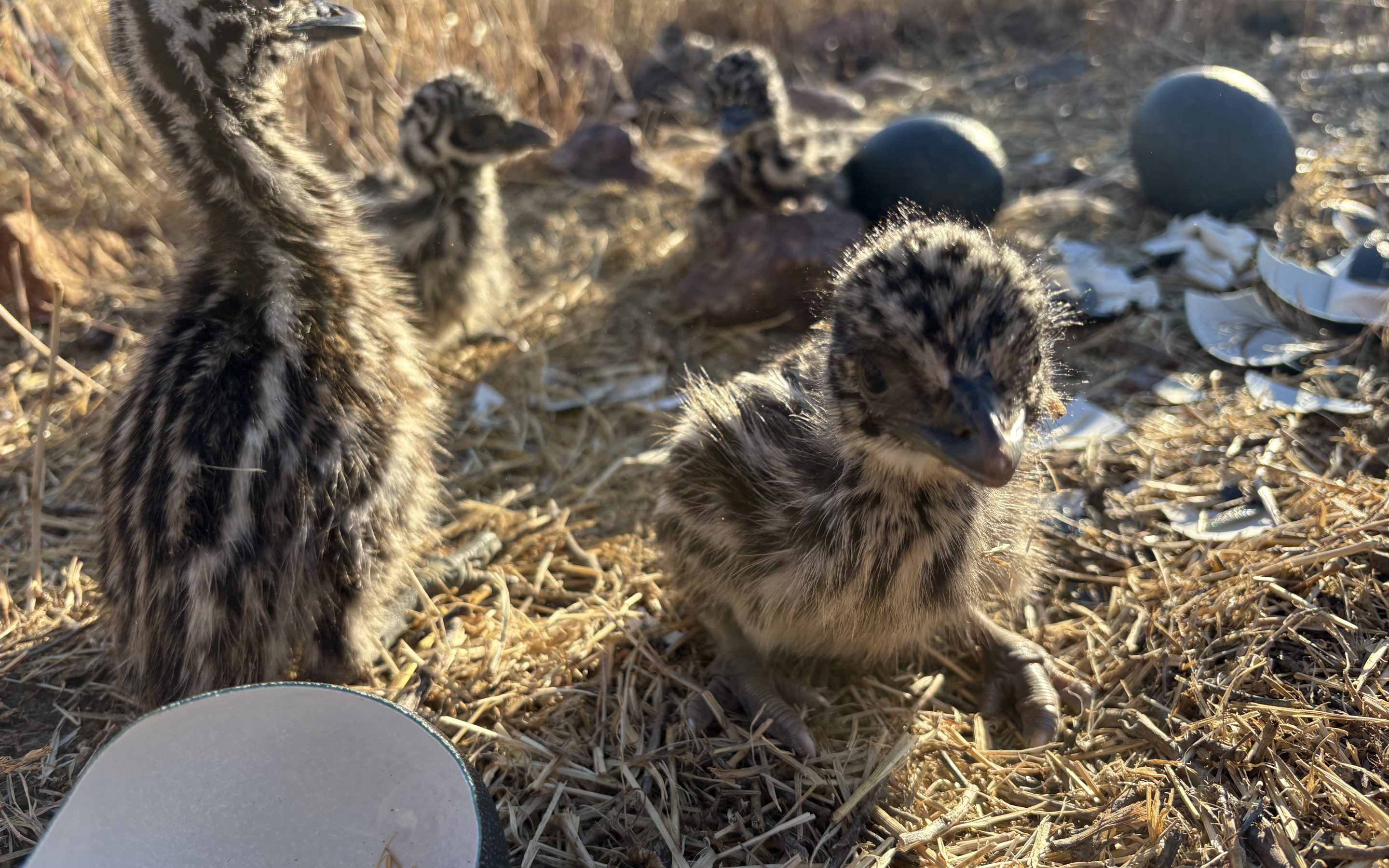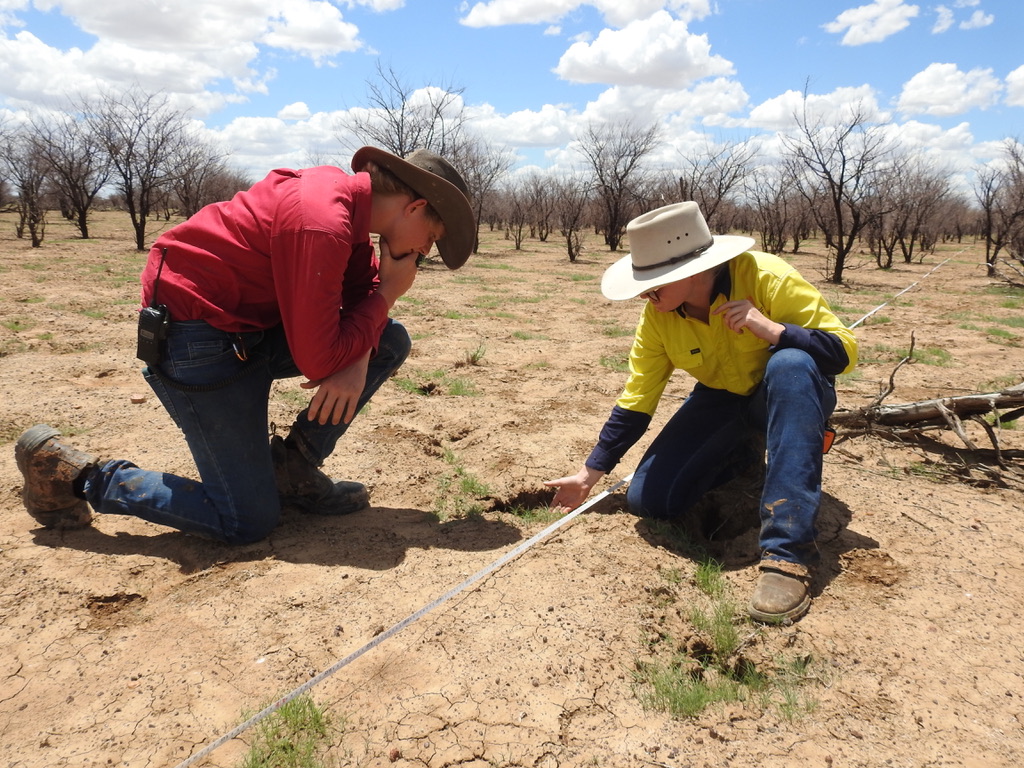Emu chicks hatch and reveal ‘extraordinary’ role of emu dads

It’s amazing what you come across in the Desert Channels region.
Our field team were lucky enough to witness the hatching of baby emus while conducting cactus control works this week.
This is why we do what we do – to protect and preserve the biodiversity and natural resources of Western Queensland for generations to come.
The weird and wonderful life of fatherhood
Emu (Dromaius novaehollandiae) grow to be the second-largest living bird by height, with males solely responsible for caring for eggs and rearing young chicks.
Interestingly, male-only parental care is a very rare phenomenon in birds – occurring in just 2 per cent of all species.
These fathers are very dedicated parents who rarely abandon their nests.
Often the male emu will lose half its bodyweight during the incubation period due to the amount of time they spend attending the nests.
In attendance for approximately 75% of the two-month incubation period, male emus conduct important duties such as rolling eggs, placing grass on the nest, sitting on eggs or standing over them.
In our case, the male emu is standing just a few metres away and – quite unusually – allowed our field team to get close to the young chicks to capture this video.
This special moment was witnessed while conducting cactus control in our region. Read more about that project via the Invasive Cactus & Succulents project page.

